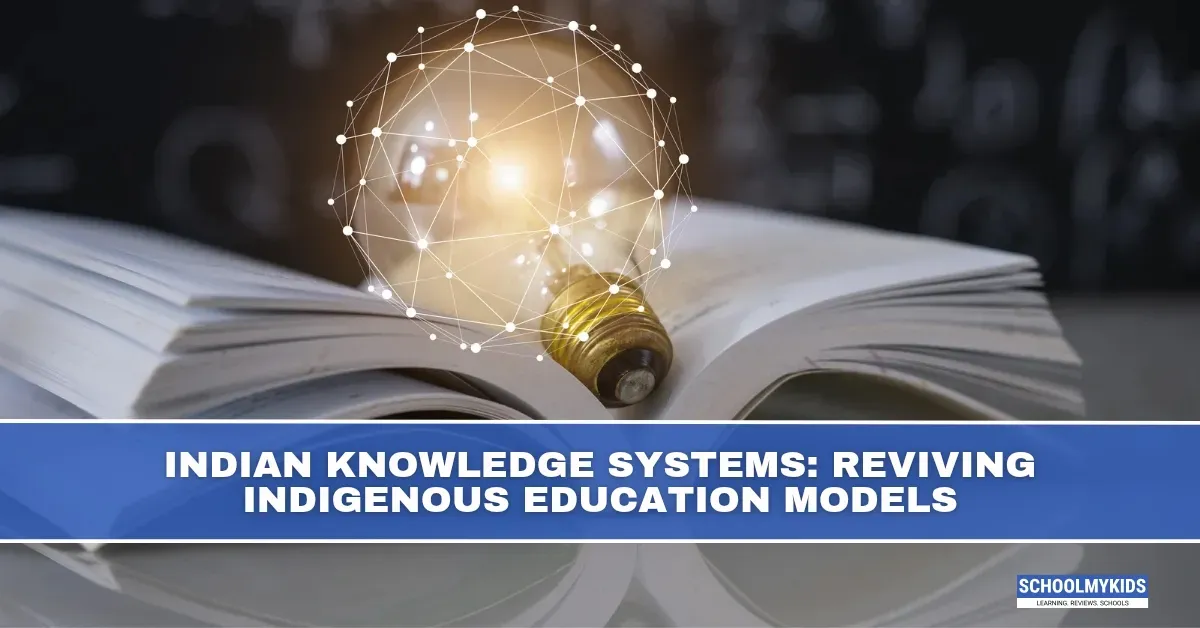In an age dominated by globalized education and Western academic frameworks, India is witnessing a renewed interest in its own intellectual roots. The revival of Indian Knowledge Systems (IKS) is more than just a cultural movement—it’s an attempt to reconnect with centuries of wisdom, science, and values that once shaped one of the world’s most vibrant civilizations. As the National Education Policy (NEP) 2020 reimagines education in India, bringing indigenous knowledge back into the mainstream has become both a mission and a necessity.
What Are Indian Knowledge Systems?
Indian Knowledge Systems refer to traditional bodies of knowledge developed in India over millennia. This includes subjects like:
- Ayurveda (health and wellness)
- Yoga and meditation
- Vastu Shastra (architecture)
- Sanskrit literature and philosophy
- Indian logic and mathematics
- Classical arts and music
- Agricultural science, metallurgy, astronomy, linguistics, and governance
These were not merely spiritual or philosophical; they were deeply scientific and logical in structure, passed down through gurukuls, oral traditions, manuscripts, and community learning.
Why the Revival Matters
1. Decolonizing the Mind
For decades, Indian education remained heavily influenced by colonial legacies. Students learned about Newton but not Aryabhata, about Darwin but not Patanjali. Reviving IKS is about reclaiming intellectual sovereignty and nurturing pride in India’s own academic history.
2. Contextual Learning
IKS promotes learning that is relevant to Indian realities—be it agriculture suited to Indian climates, wellness rooted in Ayurveda, or architecture responsive to Indian geographies.
3. Holistic Education
IKS doesn’t just aim at information; it nurtures ethics, character, community living, and ecological balance—values that modern education often sidelines.
Current Efforts to Revive IKS
National Education Policy 2020
The NEP calls for integrating Indian Knowledge Systems across all levels—from schools to higher education. Universities are now encouraged to offer courses in Sanskrit, Vedas, logic, yoga, and Indian arts.
Indian Knowledge Systems Division (AICTE)
Set up by the Ministry of Education, this division promotes research, documentation, and integration of IKS into technical education. It has also launched certifications and teacher training programs.
IITs and IKS Chairs
IITs like IIT Kharagpur, IIT Bombay, and IIT BHU are offering electives in ancient Indian science and technology, logic, and philosophy. Dedicated IKS research chairs have been established across central universities.
Community Involvement and Digital Archives
From digitizing palm-leaf manuscripts to documenting oral histories and folk sciences, the IKS revival also depends on grassroots scholars and native practitioners.
Challenges in the Revival Process
While the intention is clear, implementation isn’t always easy.
- Lack of trained faculty in ancient texts and indigenous practices.
- Difficulty in translating Sanskrit texts into modern disciplines.
- Skepticism and perception issues, where IKS is often misunderstood as unscientific.
- The need to balance traditional knowledge with scientific validation.
Blending the Ancient with the Modern
The goal is not to reject modern science but to create a bridge between ancient wisdom and contemporary research. For example:
- Ayurveda working alongside allopathy for preventive care.
- Indian logic influencing artificial intelligence models.
- Traditional farming practices guiding sustainable agriculture.
The synergy of IKS and modern disciplines could offer new models of innovation, sustainability, and learning that are deeply rooted in India’s cultural DNA.
Conclusion: A Future Rooted in the Past
Reviving Indian Knowledge Systems is not about nostalgia—it’s about restoring balance in how we view knowledge, progress, and identity. In a world struggling with ecological crises, mental health issues, and cultural disconnect, IKS offers a more humane and integrated approach to education.
For India’s youth, this is an opportunity to learn not just for a career, but for life—anchored in values, guided by wisdom, and inspired by a glorious legacy.








Be the first one to comment on this story.